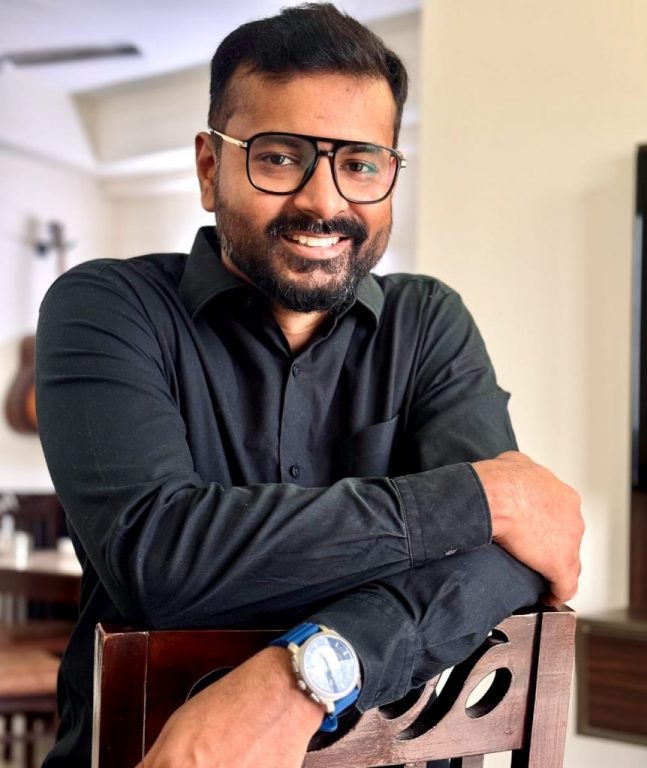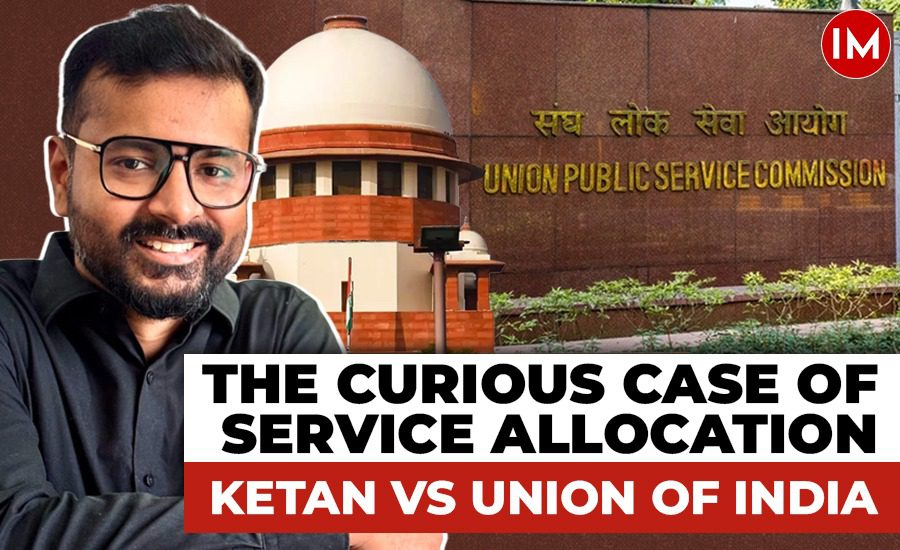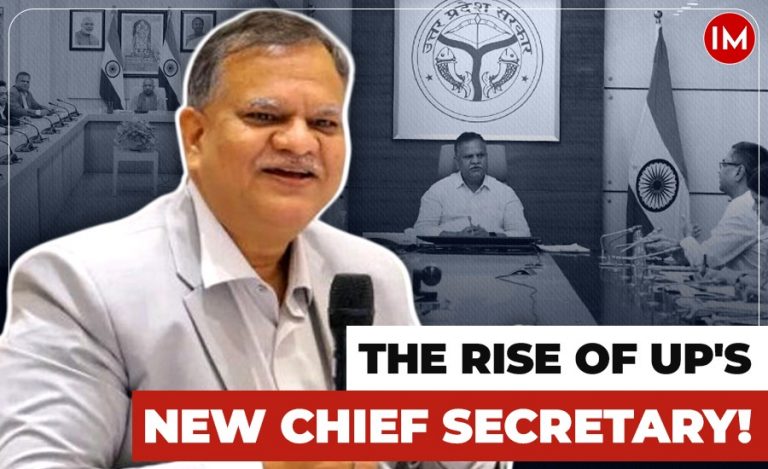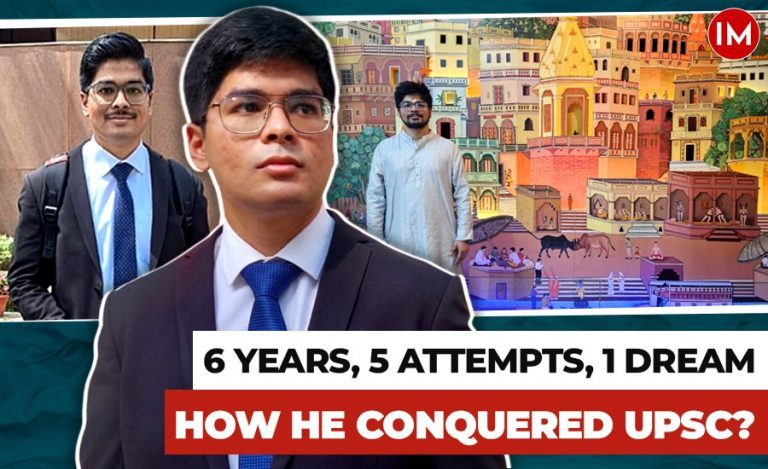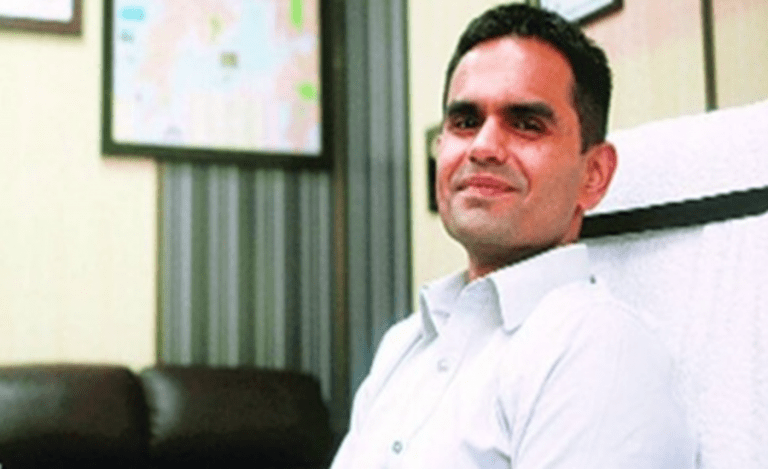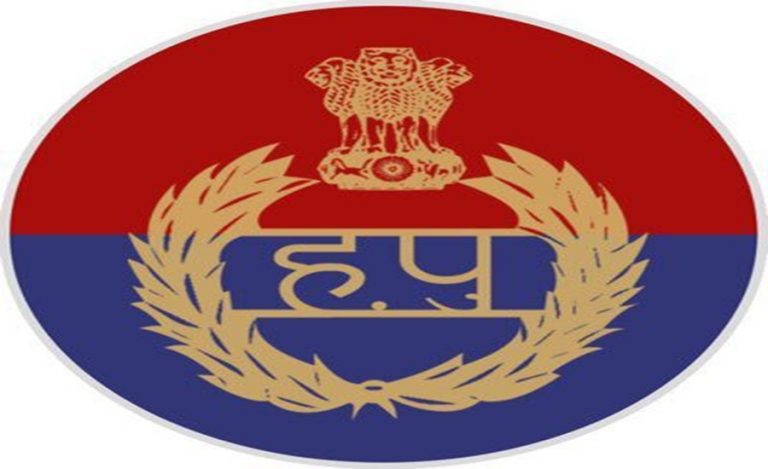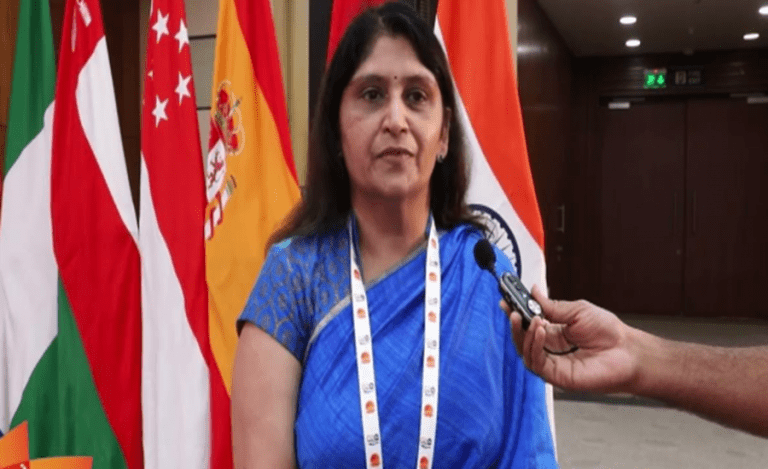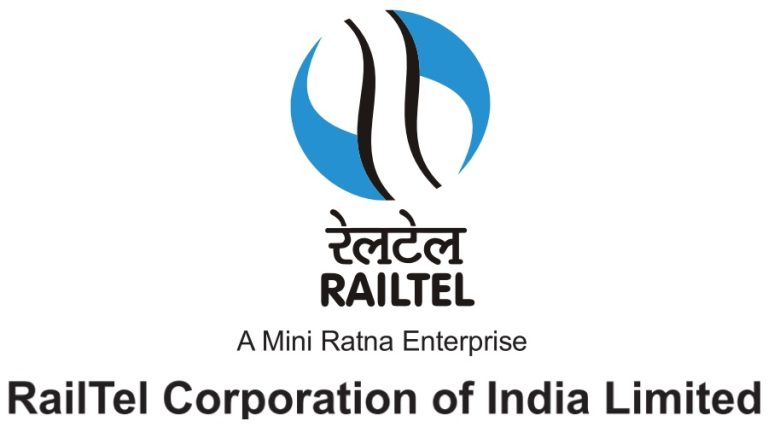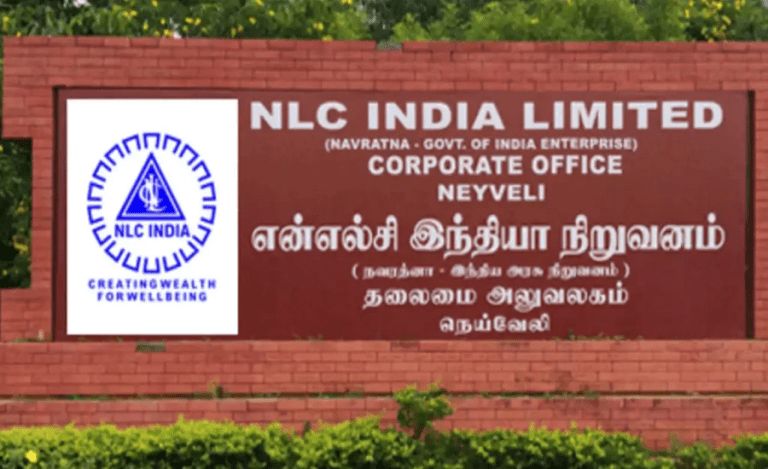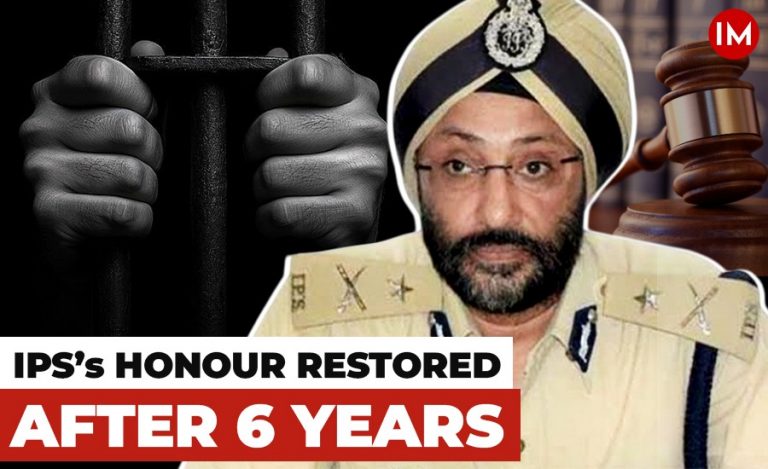After the recent paper leaks in government exams, there is widespread discourse on the pervasive corruption within exam conducting bodies and the larger issue of obtaining jobs through fraudulent certificates. These concerns have reached the hallowed halls of Parliament, reflecting a growing national concern. The manipulation of the system not only disadvantages genuine candidates but also perpetuates injustice by favoring those with fake credentials.
However, amidst these challenges, there exists another narrative – one embodied by Ketan and many others like him.
Ketan achieved success by clearing the UPSC Civil Services Exam, a monumental achievement in itself. Yet, despite this feat, he has been embroiled in a protracted legal battle for justice in the Supreme Court of India for several years. Despite favorable rulings from the National Commission for OBC and SC STs, the Delhi High Court, the Madras High Court, and CAT, he has yet to be allocated a service.
In a candid conversation with Indian Masterminds, Ketan shared the intricate details of his journey, providing a profound insight into the challenges faced by aspirants and the resilience required to navigate such adversities.
This story of Ketan not only underscores the flaws in the system but also highlights the unwavering determination of individuals who refuse to succumb to injustice, inspiring countless others in their pursuit of fairness and equity.
THE CURIOUS CASE OF KETAN & DoPT
Ketan, achieving All India Rank of 860 in the UPSC Civil Services Examination 2015, hails from an OBC community and rightfully opted for OBC reservation in service allocation. However, his journey took an unexpected turn when the Department of Personnel and Training (DoPT) contested his eligibility for reservation, citing that he belonged to the creamy layer.
Despite meticulous preparation and submission of extensive documentation, including his father’s Income Tax Returns for the past three years, Ketan faced a daunting challenge. He expressed, “Post the UPSC result announcement, service allocation is handled by the DoPT.”
The determination of the creamy layer status follows guidelines laid out in a 1993 office memorandum, encompassing various criteria. According to these criteria, Ketan qualifies under the Non-creamy layer category. Yet, inconsistencies and ambiguities in the application of these rules have led to disputes within the system, mirroring his own case.
Ketan’s experience underscores the complexities and pitfalls within administrative processes, where clarity and adherence to regulations are crucial for ensuring fairness and equity in service allocation.
THE RESERVATION
The government’s reservation policy stipulates that income for determining non-creamy layer status in Group ‘C’ jobs, such as clerical positions, should exclude earnings from salary and agriculture. This regulation applies uniformly across all government services. However, discrepancies arose when these rules were interpreted differently by the system, leading to Ketan’s contentious case.
DoPT disputed Ketan’s eligibility criteria, particularly regarding his father’s employment classification. They refused to acknowledge his father’s clerical position group, thereby basing the reservation criteria on his father’s salary instead.
Ketan recounted how DoPT cited the absence of a definitive determination for the ‘recognition of post’ in terms of OBC reservation within PSUs and Public Sector banks. This ambiguity led them to assess his father’s clerk post as potentially falling under either Group A or Group C.
Consequently, DoPT utilized Ketan’s father’s annual salary as the benchmark for reservation eligibility, which amounted to 6.1 lakh, 6.5 lakh, and 7.1 lakh over the last three years. Notably, the creamy layer income threshold was 6 lakh in 2015, recently revised to 8 lakh.
More than 55 individuals, including Ketan, are ensnared in similar unresolved cases, awaiting proper job placements despite meeting requisite qualifications.
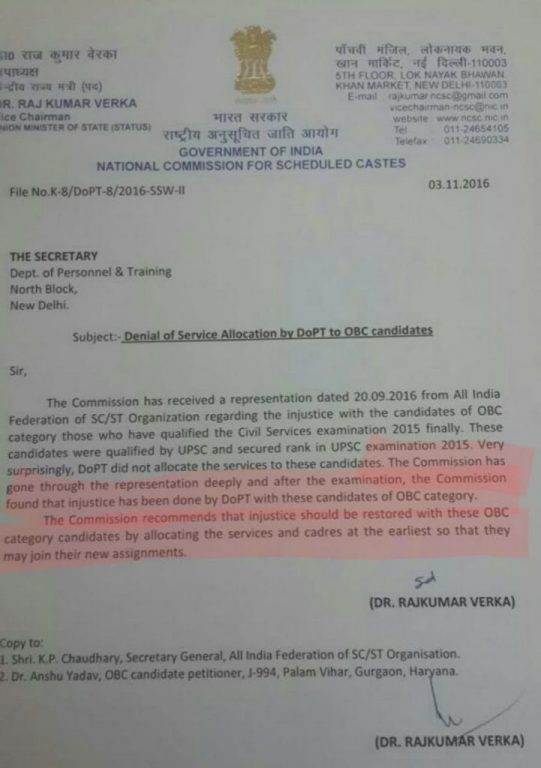
THE JOURNEY OF JUSTICE ON ENDLESS ROAD
After the DoPT denied Ketan’s reservation and shattered his aspiration of becoming a civil servant, he embarked on a new journey – the quest for justice. According to Ketan, he was entitled to reservation as per the established rules, a belief that fueled his determination.
Ketan, along with other affected candidates, initially took their grievance to the National Commission for Backward Classes (NCBC). Recognizing the validity of their claims, NCBC intervened by writing a formal letter to DoPT, strongly recommending Ketan’s service allocation based on his entitlement to reservation.
Undeterred by initial setbacks, Ketan then pursued his case before the constitutional body, the National Commission for Scheduled Castes (NCSC). Here too, his case was deemed legitimate, and NCSC echoed NCBC’s stance by forwarding a similar recommendation to DoPT.
Despite these endorsements from both NCBC and NCSC, DoPT chose to disregard their letters, further prolonging Ketan’s struggle for justice and denying him the opportunity he rightfully earned.
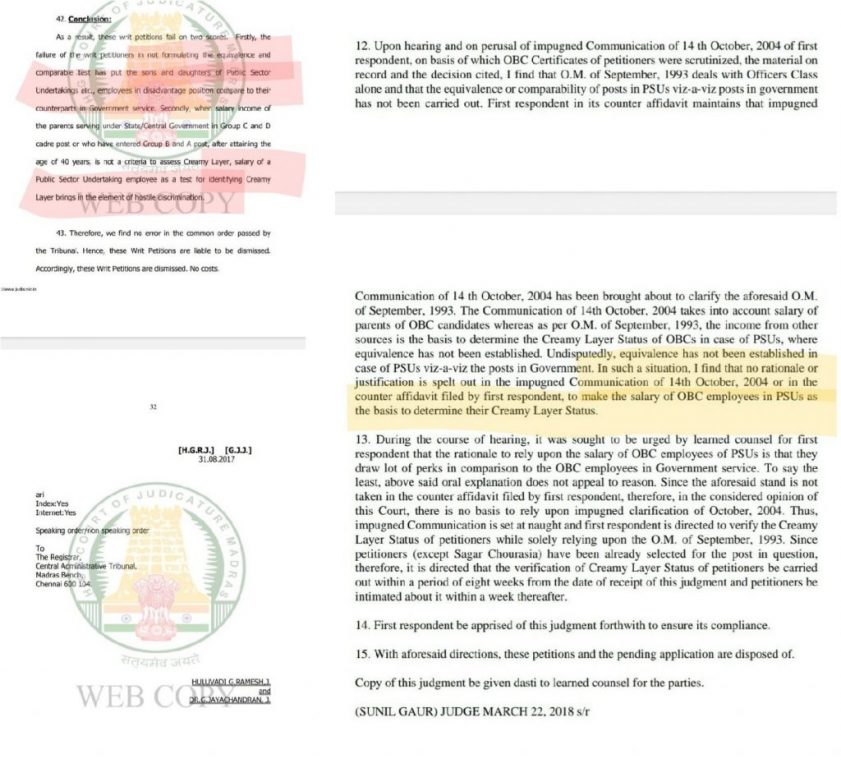
COURTS ORDER
Despite the intervention of various commissions, Ketan and his fellow candidates escalated their issue to higher judicial forums. Some pursued their grievances in the Central Administrative Tribunal (CAT) in Chennai and the Madras High Court. After a protracted legal battle spanning approximately three years, the Delhi High Court finally ruled in favor of Ketan in March 2018. Similarly, decisions from CAT and the Madras High Court also favored the candidates. However, the Department of Personnel and Training (DoPT) contested these rulings by appealing to the Supreme Court, where the case remains pending.
In parallel efforts to seek justice, Ketan and his colleagues presented their case before the Parliamentary Committee for backward classes. The committee meticulously reviewed the details of Ketan’s case and published a comprehensive report recommending the allocation of service to all affected individuals. Notably, the committee sought legal counsel from the Ministry of Law and Justice, which in 2019 validated Ketan’s case as genuine. Despite these endorsements, DoPT continued to defer to the Supreme Court for a final resolution.
Throughout this ordeal, Ketan and his colleagues have repeatedly approached DoPT, only to encounter dismissal and disrespect. Ketan lamented, “Now the officials there do not even talk to us properly. We are not treated properly there anymore.”
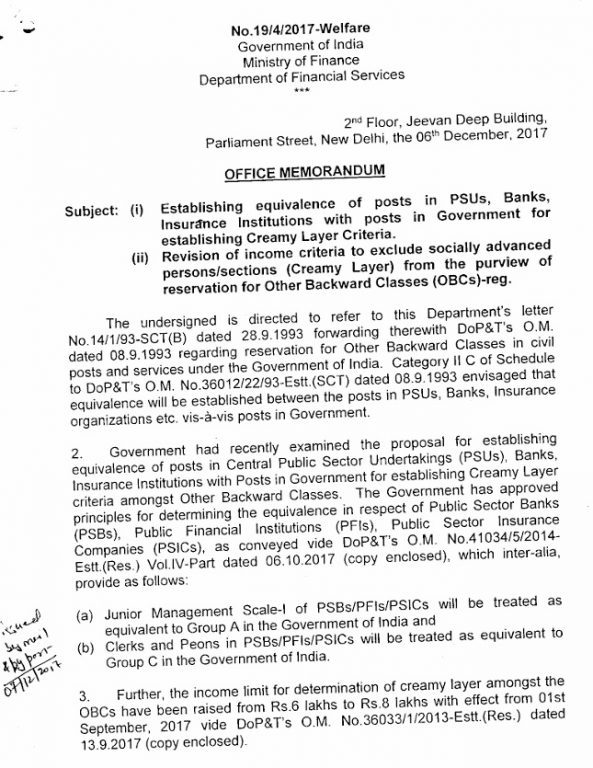
CASE IN SUPREME COURT
So far, the Supreme Court has conducted over 20 hearings on Ketan’s case, yet each time, a new date is set without any substantial progress. Ketan laments that not a single effective hearing has occurred to date.
Interestingly, since 2017, the Department of Personnel and Training (DoPT) has formally established rules recognizing clerical positions in Public Sector Undertakings (PSUs) as falling under Group C. This recognition should validate Ketan’s eligibility for reservation. However, despite this rule change, Ketan and his fellow candidates have been denied service allocation, citing that their cases were lodged before 2017.
KETAN’S BACKGROUND
Ketan, a native of Hazaribagh, Jharkhand, grew up with his father employed at Bank of India, where he started as a clerk at the age of 27 and achieved his first promotion at 46, remaining a clerk until he turned 40.
Ketan completed his early education in Hazaribagh and went on to earn a B.Tech in Electrical Engineering from IIT Delhi in 2013. His journey towards the Civil Services began during his final year of graduation, leading to his first attempt in 2013 and subsequent attempts. In 2015, on his third attempt, he secured an impressive All India Rank of 860 under the OBC category, choosing Sociology as his optional subject.
Following his UPSC success, Ketan persisted with two more attempts, reaching the interview stage in one and the mains in another, demonstrating his unwavering commitment to his goal of becoming a civil servant.
Currently, Ketan supports himself by teaching Economics at a coaching institute while awaiting a resolution to his legal battle for service allocation. Despite the prolonged struggle, he remains optimistic that justice will prevail and that the Supreme Court will rule in his favor, allowing him to fulfill his dream of serving the nation as a civil servant.
He affirmed, “This is now a matter of justice, and we will continue to fight the case until we reach a fair conclusion.”
Ketan’s determination and resilience serve as a testament to his steadfast pursuit of justice and his unwavering dedication to achieving his aspirations despite the challenges he has faced along the way.
